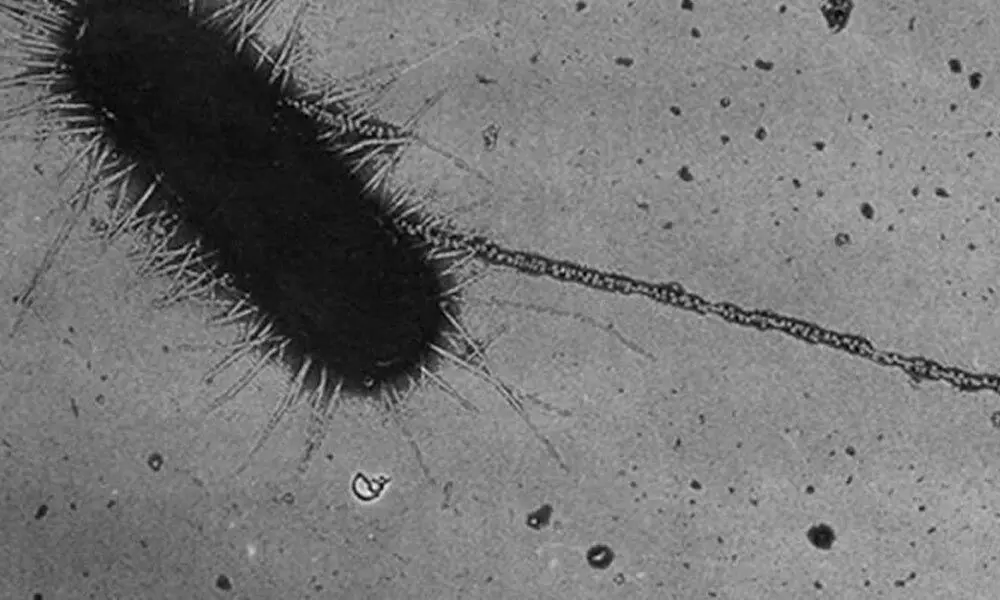Researchers Discovered More About The Bacterial Bump-And-Grind

Researchers Discovered More About The Bacterial Bump-And-Grind
- To survive, the microorganisms in their digestive tract engage in regular 'sex' with one another
- A germ can transfer its DNA to another microbe in human gut by creating a 'temporary union' with another bacterium as it doesn't need to be the same species.
A tiny orgy has taken over the human stomach. To survive, the microorganisms in their digestive tract engage in regular 'sex' with one another, all in the name of exchanging secrets on how to withstand lethal doses of antibiotics.
Researchers from the University of Illinois at Urbana-Champaign and the University of California, Riverside have discovered new exchanges that goes further what researchers formerly known about this bacterial bump-and-grind.
Bacteria lack genitals, but in biology,'sex' refers to any procedure that involves the exchange of genetic material. A germ can transfer its DNA to another microbe in human gut by creating a 'temporary union' with another bacterium as it doesn't need to be the same species.
Bacterial sex was discovered more than 70 years ago, as scientists determined that horizontal gene transfer was the mechanism by which germs shared antibiotic resistance genes, hence expanding antibiotic resistance.
Bacterial sex doesn't just happen when germs are attacked, as has recently been discovered. It happens all the time, and it's most likely one of the factors that keeps our microbiome in good shape.
New research has discovered which genes bacteria actually share when they do this. The research focused on the Bacteroidetes phylum of gut microorganisms, which account for up to 80% of the human microbiome and are essential digesters.
According to microbiologist Patrick Degnan of the University of California, Riverside, unlike these bacteria, the large, lengthy molecules found in sweet potatoes, legumes, whole grains, and vegetables would pass completely through human bodies.
Furthermore, in order to colonise the human stomach and assist in the digestion of carbohydrates, these bacteria must compete for restricted resources in the large intestine. Vitamin B12 and other similar chemicals are examples of such resources, as they aid in the bacteria's metabolism and protein synthesis.
Since most gut microorganisms lack the ability to generate these essential substances on their own, they must rely on what they can get from their surroundings. It helps to have genes for an efficient vitamin B12 transport system on hand for this to work.
Scientists have now discovered B12 transporters that are transferred via bacterial sex in both petri dishes and vivo mouse models.
Researchers discovered that when two gut microorganisms were placed on a lab dish, the bacterium that couldn't produce B12 transport systems linked with the bacterium that could. The'receiving' bacteria could unpack its valuable payload after the sex pilus crossed the space between the two.
Researchers studied the genome of the receiving bacterium, that was still alive, after the procedure and discovered that it had incorporated an additional band of DNA from the donor. Something comparable seems to occur with living mice. After giving a mouse two types of Bacteroidetes, one with the genes for transferring B12 and the other without, researchers discovered that the genes of the former had 'jumped' to the genes of the latter after five to nine days.
The scientists point out that a second round of gene transfer, that took place among Bacteroidetes of the same species, was slightly faster than the first round, that took place between two distinct species. The findings show that when it comes to bacterial sex, there may be a slight'species barrier.' Although, unlike mammals, where a species can only procreate with another of its kind, there is no such barrier.


















